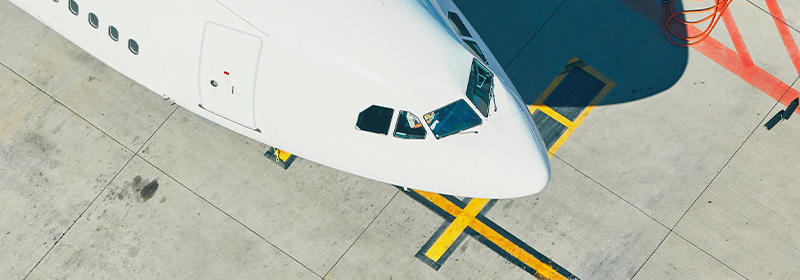- Indra equips the control towers of the two international airports and the Chengdu area control center with state-of-the-art technologies, in addition to upgrading its en-route air control center.
- The company is contributing to the success of one of the most ambitious air traffic projects to be launched in China in recent years
- It reinforces its track record of ATM projects in the country: it has modernized the large en-route control centers in Chengdu and Xian, renovated more than 15 control towers, implemented a radar network that monitors 60% of the country's skies, and deployed more than 1,000 air navigation aid systems

Indra, a leading global technology and consulting company, has implemented and is putting into operation the new air traffic management systems in Chengdu, one of the few cities in the world and the third in China, along with Shanghai and Beijing, with two major international airports.
The Chengdu-Tianfu International Airport has three runways and a capacity for 60 million passengers, but will double its capacity by 2035 with the construction of three more runways. Chengdu-Shuangliu International Airport, the country's fourth-largest airport in terms of operations, is also active.
The complexity involved in managing such a sky has led the Southwest Air Traffic Management Bureau of China (SWATMB) to once again rely on Indra, a worldwide leading supplier of this kind of technology. The company has equipped the control towers at both airports and the new terminal area control center, which orders flights within a radius of 200 miles, with state-of-the-art systems.
This center has a flight plan processing system fully integrated with the en-route air control center in Chengdu. "The two centers will operate jointly using the same processing system or switching to employ their own if necessary. This achieves a practically perfect coordination," the company explains.
The two towers are, in turn, integrated with each other and with the area control center. "They will operate as if they were a single system, ensuring complete fluidity in the control of every flight in all its phases," they note.
Indra has taken care of all the details so that tower controllers can use the most advanced tools. A single interface will give them access to all the data provided by different equipment: air traffic management systems, surveillance of movements on runways, digitized electronic records, etc. "Everything is optimized and automated to the utmost to reduce the controller's workload and enable him to manage more flights with maximum safety," they explain.
The controller receives on-screen alerts in the event of an unauthorized runway intrusion by an aircraft. It displays the glide path the aircraft follows to land and the radar information. All functionalities are aimed at supporting decision-making and enhancing security. "In the case of busy airports such as Shuangliu and Tianfu, these capabilities are essential," Indra says.
In total, the new area center has more than 55 air traffic controllers working positions, in addition to the more than 34 work stations in the control towers. Indra's technology has made it possible for all of them to operate as a single center, in a much more agile way, thus improving flight punctuality and passenger comfort. "The precision with which each operation is managed also minimizes unnecessary CO2 emissions and paves the way to meeting the aviation industry's sustainability challenge ahead," they stress.
Indra has played a critical role in SWATMB's meeting the deadlines for putting the new Tianfu airport into operation. This is one of the largest air traffic projects the country has launched in recent years. This achievement adds to the company's long history of success in its collaboration with the Civil Aviation Administration of China. In 2011, it won the contract to modernize the Xian and Chengdu en-route control centers, which manage the upper airspace of eight regions, an area comparable to that of all of Western Europe. It has also equipped more than 15 control towers and deployed some 50 radars to ensure air safety in 60% of the Chinese sky. In recent years, it has implemented more than 1,000 navigation aid systems.
The future of digitalization
Indra is the leading company developing the cutting-edge solutions that will transform air navigation in the coming years. It is currently leading one of the largest air traffic digitalization projects underway in Europe. The main air navigation organization on the continent, Eurocontrol, has entrusted it with the digital transformation of the Network Manager operating system. The company will equip it with next-generation technologies to ensure that it can continue to fulfill the critical mission of coordinating a network of 68 major air traffic control centers and more than 500 airports in the future. Indra is working on virtualization, artificial intelligence, cloud computing, and virtual reality technologies that will be key in the coming decades.
About Indra
Indra (www.indracompany.com) is one of the leading global technology and consulting companies and the technological partner for core business operations of its customers world-wide. It is a world-leader in providing proprietary solutions in specific segments in Transport and Defense markets, and a leading firm in digital transformation and Information Technologies in Spain and Latin America through its affiliate Minsait. Its business model is based on a comprehensive range of proprietary products, with a high-value focus and with a high innovation component. In the 2021 financial year, Indra achieved revenue of €3.39 billion, more than 52,000 employees, a local presence in 46 countries and business operations in over 140 countries.